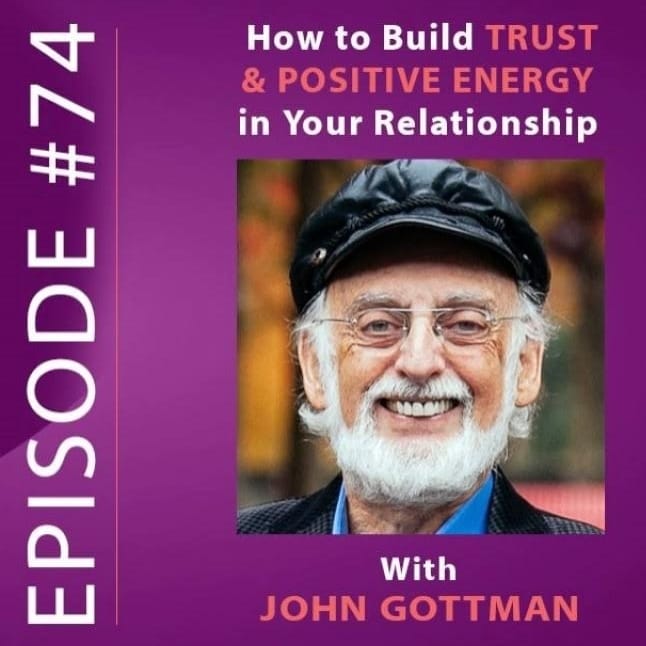A few months ago, my wife, Teresa, came home after what I can only describe as a depleting day. Not chaotic. Just heavy. The kind of day that wears you down in layers—mentally, emotionally, physically.
She'd had a frustrating client meeting, the kind where you feel like you're navigating landmines with no map. Then there was the traffic in and out of Vancouver—stop-and-go frustration for over five hours in the rain. By the time she walked through the door, she wasn't looking for advice. She was looking for connection.
She didn't announce it. She didn't need to. She dropped her bag, sat down, and gave me that look—the one that says, “Please don't try to fix this. Just be here with me.”
Now, I'll admit, my first instinct was to help. I wanted to offer solutions, give perspective, maybe suggest a way to handle that client next time. But I've learned—sometimes the hard way—that starting with solutions doesn't always lead to connection. And if we're not careful, our drive to fix things can actually disconnect us from the people we care about most.
So I took a breath. I sat down. And I asked a simple question:
“Tell me about your day and how it made you feel?”
That one question changed the conversation.
We didn't start with a plan of attack. We didn't troubleshoot the client or rewrite the next day's agenda. But in the space of being heard—really heard and understood—something shifted.
The emotions calmed. The answers became clearer. And most importantly, she didn't feel alone in it anymore.
What We Miss When We Focus Only On Solutions
In relationships, parenting, and leadership, we often jump to solving—not because it's necessarily what the other person needs or wants, but because it helps us feel useful, competent, or in control. We call it “being helpful,” but more often, it's about soothing our own discomfort—not theirs.
But what if the most impactful way to express love at home—and to build trust and connection at work—isn't fixing the issue but feeling it with someone?
Psychologists call this emotional attunement—the ability to notice, name, and respond to someone's emotional state with care. Attunement isn't about having the right answer. It's a relational practice—one that tells the other person: your emotions matter, you're not alone, and I'm willing to meet you there.
This is where the idea of meta-emotion becomes important. Meta-emotion refers to how we feel about feelings. It's our internal script—often developed in childhood—that determines how we respond to emotions, both in ourselves and others.
According to relationship researchers Drs. John and Julie Gottman—who have spent over four decades studying the habits of healthy and struggling relationships—people tend to develop one of two meta-emotion styles. Meta-emotion refers to how we feel about emotions: our own and other people's.
They observed two dominant patterns:
Emotion-coaching individuals are comfortable with emotions. They tend to notice, name, and explore feelings—either their own or others'—before moving toward action. They don't avoid solutions, but they understand that people often need to feel heard before they can move forward.
Emotion-dismissing individuals, on the other hand, often feel uncomfortable with emotional expression. They tend to minimize, deflect, or move quickly to problem-solving, not out of malice, but because that's how they were conditioned to care.
You might wonder: Is there a “right” way?
The Gottmans are careful here. Neither style is inherently wrong. Both come from somewhere. But mismatches—when one person is seeking emotional connection and the other reaches straight for a solution—are where things break down.
This kind of disconnect is especially common in families, partnerships, and teams. One person is offering their vulnerability, hoping to be seen. The other is offering a fix, hoping to be helpful. But both walk away feeling misunderstood—not because of bad intentions, but because they failed to attune to what the other actually needed in that moment.
And the consequences are significant. The Gottmans found that this mismatch—this failure to emotionally attune—predicts divorce with 80% accuracy. But it doesn't just impact marriages. It weakens trust in every kind of relationship.
If you're a manager who prioritizes performance but misses the emotional undercurrent, you lose loyalty.
If you're a parent who solves problems but never slows down to listen, you lose influence.
If you're a friend who offers advice without presence, you lose depth.
So what's really happening in those moments of missed connection?
The Disconnect Beneath the Words and Why It Matters
What causes so many well-intentioned conversations to go sideways—between partners, coworkers, friends, even strangers—isn't a lack of care. It's a lack of clarity about what's actually happening beneath the words.
Often, one person opens up—tentatively, emotionally, or even analytically—and the other responds with what seems helpful: a fix, a suggestion, or a silver lining.
It's not that one is “head” and the other “heart.” It's more layered than that.
Some people speak from the head because it feels safer than acknowledging what they feel. Others speak in emotional tones without having the language to name the deeper need. Many of us were never taught how to recognize our own emotions, let alone navigate someone else's.
And so, despite our best intentions, we miss each other.
The fixer thinks they're being helpful. The speaker hopes to be heard.
But both walk away feeling a little more alone.
Cue the quiet tension. The misfire. The silence that fills the space where understanding was meant to land.
What Teresa reminded me of that night is something we all need to remember:
Sometimes, what people need most isn't advice. They need a witness.
Someone who's willing to be present without trying to make it tidy.
This is where attunement comes in.
Attunement is the practice of noticing, accepting, and responding to someone's emotional state with care and curiosity. It doesn't mean you have to agree or even understand everything perfectly. It means you're willing to stay with them, emotionally, instead of steering the conversation away from what's real.
It's not a soft skill. It's a human skill.
And in every setting—home, work, friendship, community—attunement is what builds trust, safety, and meaningful connection.
Three Ways to Start Practicing Meta-Emotional Mastery
1. Ask, “What's the emotion underneath this?”
When someone shares something frustrating, disappointing, or overwhelming—pause. Resist the reflex to respond with advice or reassurance. Instead, ask:
“What was the hardest part of that for you?”
“How did that leave you feeling?”
Let their answer—not your assumptions—guide what happens next.
2. Try simple emotional check-ins
Whether at the dinner table, in a team meeting, or with a close friend, create small, intentional moments to ask:
“What's something that's been weighing on you lately?”
Then, just listen. No fixes. No silver linings. Practice reflecting back what you hear:
“I can see why that would feel overwhelming.”
“That makes total sense.”
This kind of listening is not passive—it's deeply active presence.
3. Reflect on your emotional inheritance
How were emotions handled in your family growing up? Were they welcomed, tolerated, dismissed, or avoided altogether? Consider:
“What messages did I receive about emotions?”
“How might those early patterns be shaping the way I respond to others today?”
This kind of reflection builds the self-awareness needed to show up differently—for yourself and for others.
Connection and the Practice of Attunement
Quality connection—in your home, your workplace, your friendships, and your wider community—has very little to do with having the right answers.
It has everything to do with how we respond when someone opens their heart.
In those moments, the most loving thing we can offer isn't a solution. It's ourselves. A steady, grounded presence. A willingness to witness, not rush.
The courage to attune—to tune in emotionally, without fixing, editing, or pulling away.
Attunement asks more of us. It means becoming sensitively aware of what someone is feeling and choosing to stay with them there. No correcting. No controlling. Just care.
Fixing feels productive, even heroic. But often, it's about our own discomfort. Attuning is slower. It's quieter. But it's where real connection begins.
Because when we attune, something powerful happens:
We create space for others to feel safe.
We build trust that isn't conditional.
We allow love to be experienced—not just spoken.
So the next time someone brings you something tender—something raw—try this:
Don't jump in with advice.
Lean in with presence.
Ask, “How do you feel about how you're feeling?”
That's where the shift begins.
Until next week,
Jonathan Penner | Founder & Exec Dir. of LifeApp


Resources For Building Emotional Intelligence

Blog
Emotional Attunement
It is impossible to nurture healthy relational dynamics without practicing attunement.
-The Gottman Institute

Podcast
How to Build Trust and Positive Energy in Your Relationships
Dr. John Gottman explores how emotional attunement builds trust—the foundation of lasting connection. He explains that listening deeply to your partner’s negative emotions with empathy and openness is key to de-escalating conflict and strengthening your bond. Attunement means being able to shift perspectives, stay emotionally present, and show your partner they matter—even in difficult moments. It’s not just about solving problems, but being a steady witness to your partner’s inner world.
-Relationship Alive, Neil Sattin with John Gottman

Music
Rescue
A song of attunement through presence, even in silence or struggle. Profoundly empathic.
-Lauren Daigle

